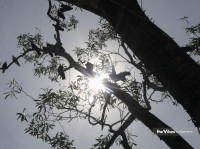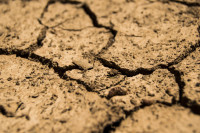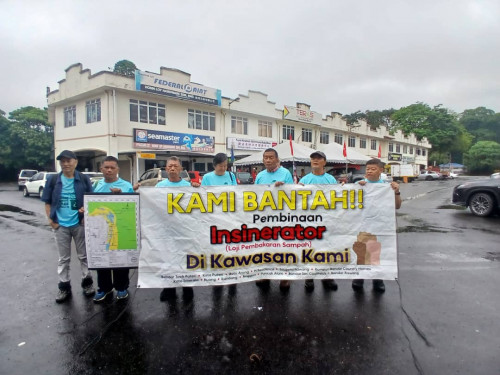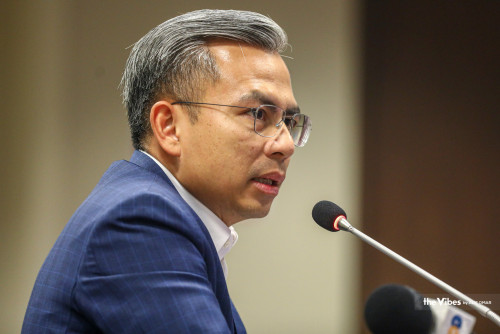EVERY year since 1970, we celebrate Earth Day, devoted to promoting and encouraging worldwide awareness and action to protect the environment.
The mission is to diversify, educate and activate the environmental movement worldwide.
Our world needs a significant transformational change.
Yet even as global environmental awareness and concern has risen dramatically over the last five decades, human activities have continued to destroy the “web of life” on which we fully depend for our food, water, clean air, and more.
About 60% of nature’s ecosystem services are being degraded, and at an accelerating pace, according to a 2019 UN assessment, which declared that one million species of flora and fauna are under threat of extinction by 2050.
Most of my generation were yet to be born when, at the 1992 Earth Summit in Rio de Janeiro, a legally binding UN Convention on Biological Diversity was signed almost unanimously by member states. Its main objectives: conservation of biodiversity, the sustainable use of its components, and access to and benefit-sharing of genetic resources.
Decadal frameworks for action and targets to address biodiversity loss have since been attempted, most recently the Aichi Biodiversity Targets (2011-2020). Alas, while some individual countries successfully reached one or more of the 20 targets, none were fully met by the world as a whole by the 2020 deadline.
This year, the international community is considering another set of decadal goals in a new UN global biodiversity framework, the draft of which sets out an ambitious plan of broad-based actions to transform society’s relationship with nature. Global negotiation of those goals and targets will resume in Nairobi in June, with plans for their final adoption in Kunming, China in late summer.
Tanzanian Elizabeth Maruma Mrema, who heads the UN convention managing the negotiations, said 18 months ago that humanity is at a crossroads that would decide how future generations experience the natural world.
“Earth’s living systems as a whole are being compromised,” she said. “And the more humanity exploits nature in unsustainable ways and undermines its contributions to people, the more we undermine our own wellbeing, security and prosperity.”
Meanwhile, the latest assessment from the UN’s Intergovernmental Panel on Climate Change this year reaffirmed that climate change is already causing more frequent and severe storms, floods, droughts, wildfires and other extreme weather events.
Greenhouse gas emissions continue to rise, and current commitments to address climate change are far below what’s needed to limit warming to 1.5°C above pre-industrial levels, a threshold scientists deem necessary to avoid even more catastrophic impacts.
Particularly troubling is that the world’s wealthiest countries are responsible for disproportionately more emissions than developing countries, which experience the most severe impacts.
I saw first-hand the devastating impacts of the December 2021 floods in my home state, Pahang – the loss of lives and livestock and the devastation of properties. At least 125,000 people were displaced, and 54 lives lost – one of the nation’s deadliest natural catastrophes in memory. And an estimated RM20 billion in economic losses was incurred, including around RM1.4 billion in damage to infrastructure nationwide.
When it comes to biodiversity loss, climate change and land degradation, immediate actions at every level and long-term strategic planning must be seriously considered by us all. No one is a bystander. Each one of us has a responsibility.
We need a transformational change of mindset, making care for nature a core value of every action of our daily life.
The ongoing epidemic of Covid-19 – a virus that passed from wild species to humans – is a stark reminder of the consequences when the balance of nature is disturbed. Covid-19 socio-economic recovery measures will be incomplete if we fail to prioritise planetary health.
As recently expressed by UN secretary-general Antonio Guterres, speaking about the wellbeing of the planet: “The hopes of the world rest on young people.” This is a heavy responsibility for which we have no choice but to accept. It is vital to reset the planet on the trajectory to a better future, starting immediately.
Governments, businesses, financial institutions, civil society and all citizens need to step up to reverse the loss of nature and the aberration of climate change.
I invite all young people of today to join me in championing the environment. I invite all young people of today to take responsibility for their actions.
Collectively we can drive change and take control of our own future. – The Vibes, April 22, 2022
Tengku Hassanal Ibrahim Alam Shah Al-Sultan Abdullah Ri’ayatuddin Al-Mustafa Billah Shah is the Regent of Pahang. The statement was issued in conjunction with Earth Day which falls today.



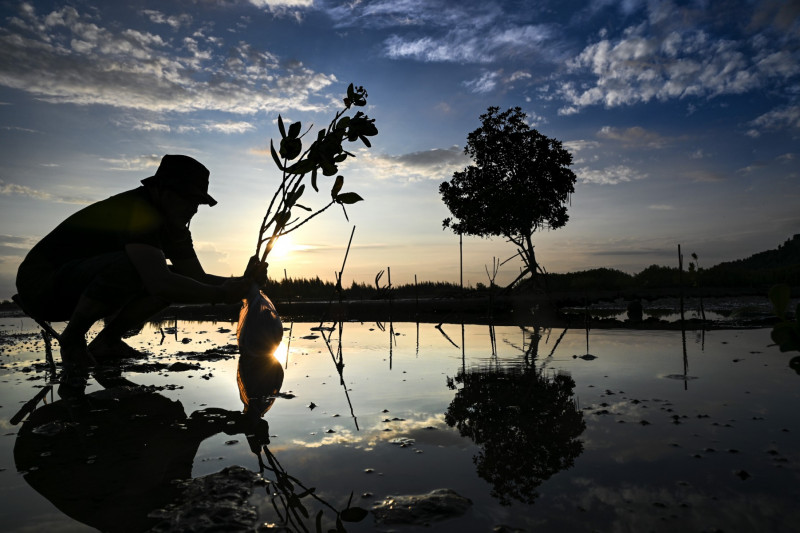
_holds_the_eagle_he_helped_to_cut_free_from_a_fish_trap_in_Jerantut._Social_media_pics..jpeg)



